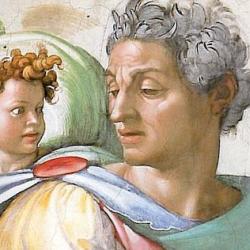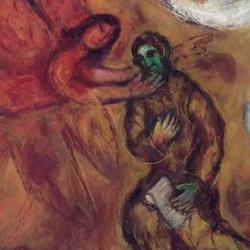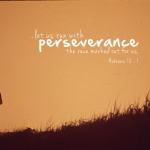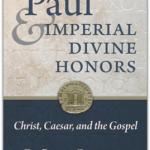Isaiah 55:7-13 is lovely poetry. It’s also a theologically rich passage.
It starts with an exhortation to the wicked to abandon his own ways and thoughts, his conduct, goals, and plans (v. 7). If he does so, he can find pardon. Penitence is the only path to pardon.
“Thoughts” and “ways” are hook words that lead into the following verse. The reason that the wicked man has to forsake his own ways and plans is that the Lord’s own ways are quite different, as much higher above man’s thoughts and ways as the heavens are higher than the earth . Isaiah 55:8-9 is sometimes taken as a proof text of God’s transcendence, but in context it focuses on something else. The thoughts and ways of the Lord must be thoughts and ways that a wicked man can find, walk in, conform to. Instead of pursuing his own plottings, he repents by turning around and moving in God’s ways, by taking up God’s (higher, heavenly) plans and purposes as his own. Formerly, money was his main aim; now his goal in life is to serve God and His people. Before, he would cut corners and didn’t care who got trampled; now his business is honest and he is careful not to harm others.
After verse 10, the text takes a new direction, but the repetition of “heaven” and “earth” in verses 9-10 link the two.
The Lord illustrates from the natural world, and the description of that cycle is noteworthy. Rain and snow come from heaven, God’s place, the higher place associated with God’s thoughts and plans. Heavenly gifts come down to earth, and in context this suggests that God’s purposes and plans, first linked with heaven, descend to earth, in the form of Word (v. 11). God’s thoughts and ways are expressed in His Word – written and personal.
When rain and snow come from heaven, they satisfy the thirsty earth. The verb for “water” is ravah , which can refer to the pleasures of sexual love (Proverbs 5:19; 7:18), to blood soaking the earth after a battle (Isaiah 34:7; Jeremiah 46:10), or to the slaking of thirst, as in Isaiah 55. (I wonder if Hebrews would have recognized a pun between ravah and ruach , “spirit”; they look very similar.) Heavenly gifts come to earth and make the earth a giver; rain and snow are gifts that enable gifts, seed and bread. Rain gives earth the power to give. Not surprisingly, this is infused with sexual imagery. Heavenly rain comes down to the feminine earth and “it gives birth” (the hiphil of yalad ). Heavenly rain makes mother earth produce “seed.”
And the other pole of the comparison is “My word” (v. 11). It is like the rain and snow, both because it comes from heaven down to earth, because it does not return, and because it accomplishes something. It accomplishes something very similar to what the rain and snow accomplish. God’s word from His mouth is like rain that comes to the earth, and gives the power to give. God’s people are His earth, and the Word descends from heaven to make us sprout and bud, to produce seed and bread. It’s because of Yahweh’s heavenly Word that once-barren Zion has a market where she offers bread without cost (v. 2).
God’s heavenly Word, which expresses His thoughts and ways, gives to us the power to give seed and bread; reaching back to verses 7-8, it gives us the power to walk in His heavenly ways and mold our plans to His heavenly plans. This is partly because without His Word from heaven, we on earth would not know His “higher” ways and thoughts. But the Word is not merely informative; it is empowering. It is the gift that gives the gift of giving. Heavenly words also link with the sexual imagery of the passage: Yahweh’s word comes to barren Zion so that she “give birth” to a seed too numerous for her to house (54:1-3).
Verses 12-13 seems to shift to another topic, the return from exile. But the botanical imagery of verse 13 is clearly linked to verses 10-11. Before God’s heavenly Word descended, the earth was a wilderness producing only thorns and briers. Once the rain of God’s Word falls to earth, the earth springs up with other vegetation, firs and myrtles. Instead of a wilderness, watered ground produces a grove and a garden.














